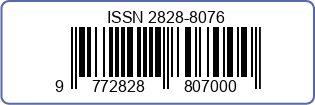Empowering Students’ Speaking Proficiency through a Two-Day English Camp: A Community Service Program in Rural Indonesia
https://doi.org/10.59110/rcsd.707
Keywords:
Communicative Tasks, EFL Learners, Enlish Camp, Fluency, Speaking ProficiencyAbstract
This study investigates the impact of the English Camp program on enhancing English-speaking proficiency at SMA Negeri 11 Luwu, Indonesia. Conducted over two days, the program focused on interactive learning through communicative tasks such as group discussions, role-playing, and language games. A total of 44 students participated, and their speaking abilities were assessed using pretest and posttest evaluations. The results showed significant improvement in fluency, vocabulary, pronunciation, and confidence. Group 1 and Group 5 exhibited the highest increases in scores, with fluency and confidence showing the greatest gains. The study found that the program was especially effective for lower-proficiency learners, while higher-level learners showed minimal progress due to the ceiling effect. Qualitative data from teacher and student interviews indicated that the camp created a positive and engaging learning environment that encouraged students to use English naturally and confidently. The findings support the efficacy of short-term, immersive programs in improving EFL learners’ speaking skills and highlight the importance of experiential and collaborative learning in language acquisition.
Downloads
References
Abulhassan, A. B. A., & Hamid, F. I. E. (2021). Perception and interest of English language learners (ELL) toward collaborative teaching: Evaluation towards group activities. English Language Teaching, 14(5), 1–12. https://doi.org/10.5539/elt.v14n5p1
At Thahira, C. S., Fitriani, S. S., & Fitrisia, D. (2023). Students’ perception towards English camp in Kampung Inggris Pare on improving their speaking skill. English Education Journal, 14(3). https://doi.org/10.24815/eej.v14i3.32588
Bachore, M. M. (2022). English language literacy skills and academic achievement of urban and rural secondary schools: The case of high and low achievers. Education Research International, 2022. https://doi.org/10.1155/2022/2315426
Bygate, M. (2019). Learning language through tasks: Research and practice. Language Teaching, 52(3), 349–364. https://doi.org/10.1017/S0261444819000103
Desmiyanti. (2022). English club to improve students’ speaking skills: A case study of an Indonesian Islamic senior high school. Jurnal Inovasi Edukasi, 5(2). https://doi.org/10.35141/jie.v5i2.405
Elisathusilawani, E. (2023). Exploring EFL students’ speaking challenges in their speaking for social purposes. Journal of English and Education (JEE), 9(1), 10–21. https://doi.org/10.20885/jee.v9i1.28010
Iksan, M., Husnaini, H., & Masruddin, M. (2022). Implementation of weekly English program with fun learning method for pesantren students. Ethical Lingua, 9. https://doi.org/10.30605/25409190.479
Ilmudinulloh, R., Bustomi, A., Pratiwi, W., & Ilyas, M. (2022). Communicative language teaching (CLT) approach in Kampung Inggris Pare in the new normal period. Jurnal Inovasi dan Teknologi Pembelajaran, 9(3), 250–258. https://doi.org/10.17977/um031v9i92022p250
Kapoyannis, T. (2021). The Name Jar Project: Supporting preservice teachers in working with English language learners. Language and Literacy, 23(3). https://doi.org/10.20360/langandlit29510
Leyaley, R. V. G. (2023). Students’ passiveness in speaking English: The culprit behind the silence in the classroom. Open Journal of Social Sciences, 11, 98–111. https://doi.org/10.4236/jss.2023.118007
Lo, C., Wen, H., & Lin, Y. (2021). The effect of readers theater on EFL seventh-graders’ reading and listening comprehension. SAGE Open, 11(3). https://doi.org/10.1177/21582440211038388
McKoy, S., & Merry, K. (2022). Engaging advanced learners with differentiated online learning. Gifted Child Today, 46(1), 48–56. https://doi.org/10.1177/10762175221131068
Nation, I. S. P. (2021). Learning speaking through communicative tasks. Routledge.
Porter, S., & Castillo, M. (2023). The effectiveness of immersive language learning: An investigation into English language acquisition in immersion environments versus traditional classroom settings. Research Studies in English Language Teaching and Learning (RSELTL), 1(3), 155–165. https://doi.org/10.62583/rseltl.v1i3.17
Qizi, A. M. I. (2023). The importance of speaking skills in English classrooms. ILM – FAN TA’LIMDA INNOVATSION YONDASHUVLAR, MUAMMOLAR, TAKLIF VA YECHIMLAR. https://doi.org/10.5281/zenodo.8380723
Ready, A. F., & Indrayani, N. (2021). English camp as learning and teaching atmosphere of speaking ability development. Journal of Language Intelligence and Culture, 3(2). https://doi.org/10.35719/jlic.v3i2.58
Richards, J. C. (2021). Teaching speaking and listening: From theory to practice. Cambridge University Press.
Skehan, P. (2020). Task-based language teaching: Theory and practice. Cambridge University Press.
Tavakoli, P., & Hunter, A. M. (2018). Fluency in L2 learning and use: Performance, measurement and pedagogy. Cambridge University Press.
Thayyib, M., Masruddin, M., Nur, M. I., Ermawati, E., & Idrus, A. Y. I. (2023). Pelatihan bahasa Inggris pariwisata bagi masyarakat desa Rinding Allo. ASPIRASI: Publikasi Hasil Pengabdian Dan Kegiatan Masyarakat, 1(2), 1–12. https://doi.org/10.61132/aspirasi.v1i2.187
Widodo, H. P. (2021). Contextual challenges in teaching English speaking in rural Indonesia. TESOL Journal, 12(3), e578. https://doi.org/10.1002/tesj.578
Wu, C. (2023). The impact of positive psychology-based classroom on English speaking teaching and learning of EFL college students. Journal of English Language Teaching and Applied Linguistics, 5(3), 45–54. https://doi.org/10.32996/jeltal.2023.5.3.5
Yusup, A., & Munawaroh, S. (2023). Analysis of factors affecting motivation and interest in learning English for non-English students. Journal Transnational Universal Studies, 1(2). https://doi.org/10.58631/jtus.v1i2.12
Downloads
Published
How to Cite
Issue
Section
License
Copyright (c) 2025 Husnaini, Ermawati, Fidia Ditazam Malik

This work is licensed under a Creative Commons Attribution-ShareAlike 4.0 International License.
















